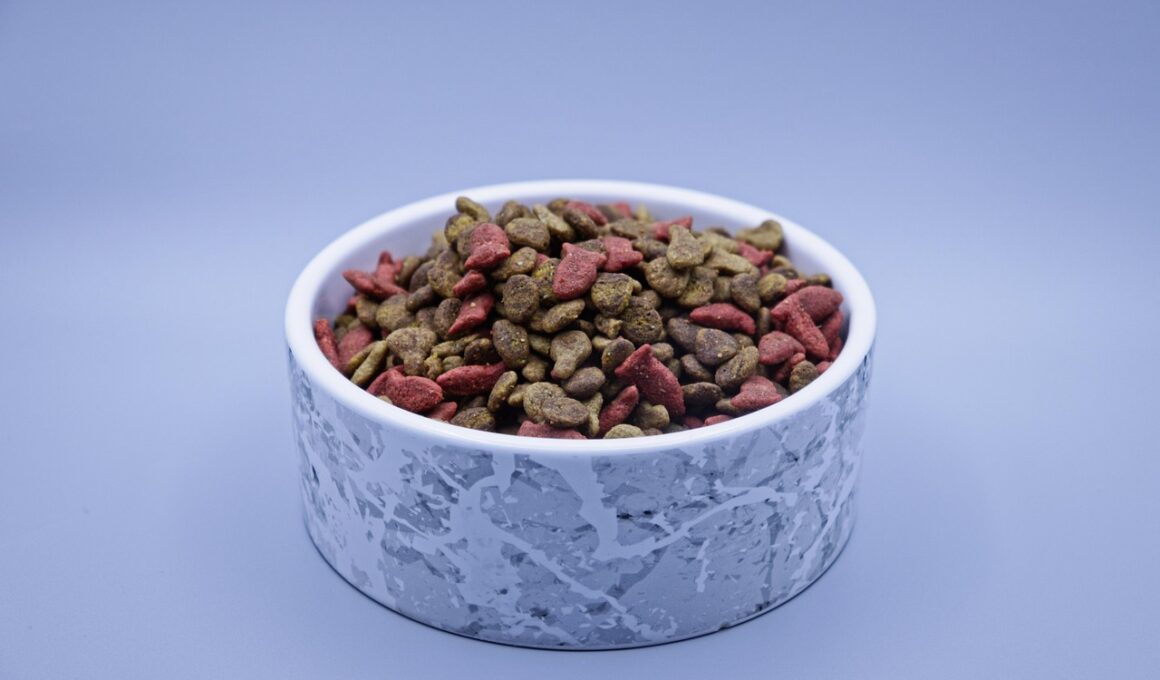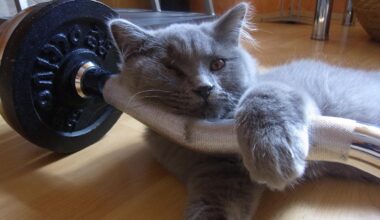Can Probiotics Help with Cat Allergies?
If you’re a cat owner, you may have encountered your feline friend suffering from allergies. Similar to humans, cats can experience allergic reactions to environmental factors, food, or even allergens in their surroundings. In recent years, the role of probiotics and prebiotics in managing these conditions has gained attention. Probiotics are live beneficial bacteria that improve gut health, while prebiotics serve as food for these healthy microorganisms. So, how can they aid cats with allergies? When your cat’s digestive system is well-balanced with probiotics, it may reduce inflammatory responses that trigger allergies. A healthier gut can also help increase the absorption of nutrients essential for maintaining a robust immune system. This improved immunity can potentially minimize allergy symptoms. As a cat owner, you might consider introducing probiotics in your pet’s diet after consulting a veterinarian. There exists a variety of probiotic supplements specifically formulated for cats. These supplements can be easily added to your cat’s food or offered as a treat. Regular use may help maintain a balanced gut flora and possibly alleviate allergic reactions. Always prioritize your cat’s health and wellbeing by choosing quality products.
Understanding the root cause of allergies in cats is crucial. Allergies may arise due to various factors. Here are some common allergens that may affect your cat:
- Environmental factors such as dust and pollen
- Food ingredients like grains or certain proteins
- Fleas and other parasite bites
- Household items, including cleaning agents
All of these triggers can contribute to itchy skin, digestive issues, or respiratory problems. Probiotics can help manage these symptoms, as they encourage a balanced gut microbiome. With consistent use, probiotics may guide your cat’s immune response to these allergens. This could lead to less itching and scratching. By enhancing the gut barrier, probiotics might reduce absorbent allergic substances that can cause adverse reactions. When selecting a probiotic for your cat, ensure it contains strains specifically suited for feline health. Always consult your veterinarian about the best options available. They can provide personalized recommendations based on your cat’s specific health needs and lifestyle. This lifestyle approach, combined with a proper diet, can make a substantial difference in your cat’s allergy management.
Benefits of Probiotics for Cats
The potential benefits of probiotics extend beyond just allergy relief. These beneficial bacteria have several other positive effects on feline health. Cats experiencing gastrointestinal issues, like diarrhea or constipation, may also find relief from probiotic supplementation. A healthier gut can significantly improve your cat’s overall well-being. Additionally, probiotics can enhance nutrient absorption, ensuring your cat gets the essential vitamins and minerals from its diet. By improving digestion, probiotics not only support gut health but can also help combat obesity. A healthy weight is vital for your cat’s overall health, as overweight cats may suffer from various health issues. Furthermore, probiotics contribute to better skin health. This can be particularly beneficial for cats with allergy-induced skin problems such as dermatitis. Probiotics support a balanced immune function, which may improve resistance to infections as well. Therefore, choosing a probiotic can offer multifaceted benefits for your feline family member. Alongside traditional veterinary advice, probiotics can be a great addition to a holistic approach to your cat’s health, including regular vet check-ups and nutritional assessments.
When considering the introduction of probiotics into your cat’s diet, knowing how to choose the right supplement is crucial. Not all probiotic products are created equal; some may not be suitable for pets. Look for the following key factors:Paw-sitively Effective Strains: Prioritize probiotics containing specific strains proven to benefit cats, like Lactobacillus and Enterococcus. Formulation: Choose those gourmet supplements that cater to feline digestion for optimal effects. Quality Assurance: Select reputable brands that have undergone rigorous testing. Always read product labels for clarity on live cultures and guarantee effectiveness. Veterinary Approval: Consult your vet before starting any new supplement, obtaining professional guidance on suitability and dosage. Notably, the probiotic form is also important, as they can come in various forms. Some are powder-based while others are chewable treats or capsules. Each form has its pros and cons based on your cat’s preferences and consumption habits. The key is to find an option that your cat will readily accept.
Potential Risks and Considerations
Incorporating probiotics into your cat’s diet, though beneficial, requires careful consideration of potential risks and side effects. While generally safe, introducing new supplements can sometimes cause digestive upset or discomfort in cats that aren’t used to them. Monitor your cat for any unusual reactions, particularly during the initial period of use. Some cats may experience gas or bloating as their gut adjusts to the new bacteria. If this occurs, consider starting with a lower dosage, gradually increasing it to allow for better tolerance. Also, it’s vital to select a product free of fillers, allergens, and artificial ingredients, as these can trigger more severe allergic reactions. Always follow your veterinarian’s advice regarding the duration of use. Some probiotics may need to be taken consistently, while others may be used intermittently based on your cat’s needs. Additionally, any severe underlying health issues or dietary restrictions should be disclosed to ensure safe supplementation. Knowledge of these factors is key in maximizing the health benefits of probiotics while minimizing their risks for your cat.
Integrating probiotics and prebiotics into your cat’s diet can be an impactful process. It’s essential to remember that supplementation should complement a balanced and nutritious diet. Probiotics are not replacements for quality food but rather enhancements to support overall well-being. Therefore, along with probiotic supplements, providing a balanced diet rich in fibers and high-quality proteins is crucial. For optimal results, consider consulting with your veterinarian about the best food options that also support gut health. Additionally, consider your cat’s individual needs, such as age, size, and existing health issues, while making dietary changes. Furthermore, pay attention to the hydration of your cat as proper water intake also plays a significant role in digestion and gut health. Regular feeding schedules can help mitigate digestive irregularities as well. Engage in diligent monitoring of your cat’s symptoms to observe any positive changes post-supplementation. Keeping a journal detailing observations can aid in sharing this information with your veterinarian during check-ups. Collaboration with veterinary professionals can ensure you’re informed, making strategic decisions that will benefit your cat’s overall health journey.
Conclusion: Proactive Nutrition for Your Cat
In conclusion, probiotics present an exciting opportunity for cat owners aiming to manage allergies and improve their feline companions’ overall health. Through enhancing gut health and stimulating immune functions, probiotics may significantly benefit cats prone to allergies or digestive issues. Optimal management of allergies often involves a multifaceted approach including proper nutrition, regular veterinary check-ups, and lifestyle adjustments. Choosing quality probiotic products tailored for cats can be an essential step in this process. With high prevalence of allergies among cats, exploring available nutritional supplements can provide additional support. Ultimately, your cat’s well-being relies on a comprehensive care strategy that addresses both immediate and long-term health needs. It’s crucial to remember that while probiotics can help, they are only one part of the larger health picture. Prioritizing your cat’s nutrition should be a continuous effort. You’re encouraged to stay informed about the latest developments in pet care. By working closely with your vet and applying proactive measures, you can support your cat’s health and enhance its quality of life. Emphasize preventive care, ensuring your furry family member leads a happy, healthy lifestyle well into its golden years.


